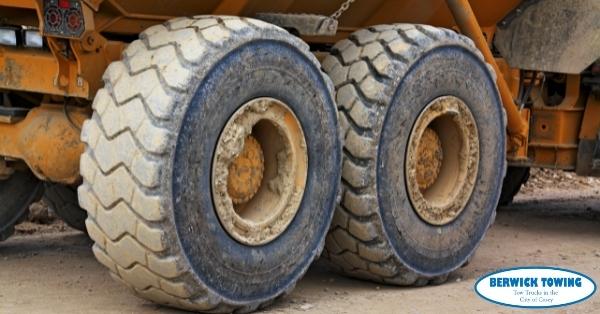When super single tires first showed up on the market, a lot of truckers were excited at the prospect of having to deal with less weight and save some fuel. However, the first installment didn’t live it to its expectations and was deemed underwhelming.
That being said, the modern super singles have come a long way since their initial release and have recently been a hot topic of discussion among truckers. Whether they are better than standard duals or not is subjective, but that does not mean we can’t highlight some of the benefits and downsides of using super single tires. Here is our take on the pros and cons of super singles:
Pros of Wide-Base Tires
One of the significant advantages super singles have compared to dual tires is that they are more resistant to rolling. In layman’s terms, this means there is less friction between the tires and the road; thus the tires are allowed to rotate more freely. Less contact area means less energy wasted leading to increased fuel mileage.
Most manufacturers claim an increase of up to 4 % is possible by using these wide-base tires, but realistically, it’s closer to about 1-2 %. For instance, Michelin X ONE® Line Energy D tires are highly regarded as one of the best models when it comes to rolling resistance.
Another benefit is the reduction in weight. Switching from steel rims and dual tires to aluminum wheels and wide singles can save you up to 200 lb per axle. Weight savings can easily translate to increased revenue through extra payload. Less weight and wider tires also improve handling.
Lastly, the obvious benefit of using wide-base tires instead of duals is related to maintenance. Super singles are regarded as low-maintenance because there are fewer tires to worry about.
Okay, so now let’s check out the disadvantages.
Cons of Wide-Base Tire
Something you really want to pay close attention to is avoiding overloading your truck. Since you’re basically substituting two regular tires with a super single, even though that one tire is wider, it’s still doing twice the work. This makes regular inflation checks even more critical as under-inflated tires can result in a severe accident.
Another downside of using single wide-based tires is the lack of limp-home capabilities. Let’s say you’re doing a long haul and you get a flat tire. With duals, you can at least get to the nearest mechanic. With singles, you’re stuck in place until help arrives. Situations like these discourage large line-haul fleets from making the complete switch to single wide-based tires.
Lastly, while super singles do save you money in the long run, they also tend to wear out faster than dual tires. Super singles see a lot more work, hence why they have a shorter lifespan and need to be replaced more often. However, drivers state that you still end up saving money, but the exact amount can vary. You’ll have to do the math on your own to figure out if it’s worth switching to wide-based tires.
So what’s your opinion on the debate whether super single tires are better than duals or not? Let us know in the comments below!
If you find yourself stranded with a flat tire and in need of assistance, you can count on Berwick Towing to get you out of trouble. Our emergency roadside services are available to the Melbourne area 24/7, so don’t hesitate to give us a call any time of the day. Help is on the way!
Affordable Towing Services Company in Melbourne South Eastern Suburbs.
Berwick Towing & Transport located near the Officer check below map.
Berwick Towing & Transport
27B William Rd
Berwick VIC 3806
https://berwick-towing.com.au/
* Find us on Google Map

